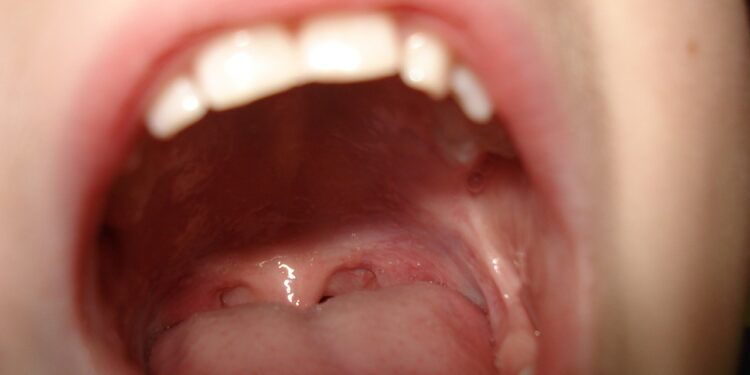Having an unusual red or swollen tongue is a sign of glossitis. This is a condition where the tongue becomes inflamed for various reasons ranging from infections to nutritional deficiencies. There are different types of glossitis and each of these types has a different appearance.
The most common type is a geographic tongue which affects up to 2% of the global population. This might seem like a minor issue but it is one of the most uncomfortable conditions and it disrupts your daily activities like swallowing and even chewing. In this article, we are going to look at how glossitis is diagnosed and the available treatment to help restore your tongue.

Diagnosis of Glossitis
The first diagnostic step is to visit the doctor, who will then ask you about your symptoms. The doctor will want to know if your tongue hurts, if it is swollen, or if you have noticed changes in your taste.
Then he would go ahead to ask about your diet, any recent illnesses or allergies, because all of these could be linked to the problem. Next, the doctor will take a close look at your tongue. He’ll check for signs like redness, swelling, or any changes in texture, like the loss of those tiny bumps that you can find on the tongue. He’ll also check for swelling.
Oftentimes, glossitis is related to a lack of vitamins or other health problems, so the doctor would have to run some blood tests to make sure that there are no hidden issues. These tests check for things like iron or B vitamin deficiency, which are all common causes of glossitis. Blood tests can also help to find infections or other autoimmune issues.
If the glossitis doesn’t go away, or if the doctor thinks something serious might be causing it, he would recommend a biopsy. A biopsy is when a small sample of tissue is taken from your tongue to be studied under a microscope. This step would help to rule out serious conditions like cancer or other diseases.
Treatment of Glossitis
Usually, the first step in treating any illness is to find out what caused it. Glossitis can happen for many reasons like infections, allergies, or not getting enough vitamins. For example, if you have an infection, the doctor will need to treat that infection. However, if your body is low on certain vitamins or nutrients, the doctor will focus on fixing just that. The purpose of this is to ensure that glossitis stops and doesn’t come back.
Nutritional Supplements: Sometimes, glossitis is caused by a lack of important vitamins or minerals that the body needs, like iron, B vitamins, or folic acid. If the doctor finds out you have a deficiency, he will recommend supplements, either pills or tablets, that can give your body the nutrients it needs to heal.
For example, if you lack iron, the doctor may give you iron supplements to help your tongue heal and reduce inflammation. If you are low on vitamin B12, which can affect the health of your tongue, the doctor may recommend B12 supplements.
Antifungal Medications: If glossitis is caused by a fungal infection like candida, a type of yeast, the doctor will prescribe some antifungal medications. These medications kill or stop the growth of the fungus that is causing the swelling in your tongue.
You might also be given antifungal creams, tablets, or mouth rinses depending on how serious the infection is. The treatment will help to clear up the fungus and allow your tongue to heal and return to normal.
Antibiotics: Glossitis can also be caused by bacterial infections. Antibiotics are usually prescribed to fight off any harmful bacteria in the body. Bacteria in the body can cause swelling, pain, and redness; in this case, it causes all of those in the tongue.
The doctor will give you the right antibiotics based on the type of bacteria they believe is causing the infection. Once the bacteria are controlled, the inflammation will reduce and the pain should lessen, which will help your tongue heal.
Corticosteroids: In some cases, glossitis causes a loss of swelling and pain. Doctors might prescribe corticosteroids to help reduce inflammation. These steroids calm down the immune system to stop it from causing too much swelling. Corticosteroids come in different forms like pills, creams, or sometimes an injection.
Pain Relievers: Glossitis can be, with no doubt, painful. Doctors may recommend over-the-counter pain relievers like ibuprofen or acetaminophen. These medications help reduce pain and also lower any fever you might have. These pain relievers make it easy to eat, talk, and go about your day while your tongue heals.
Note: You can buy these pain relievers at a drugstore or a pharmacy without any prescription. However, be sure to ask the health consultant in charge for a dosage that you should use.
Good Oral Hygiene Practices: It is no news that good oral hygiene prevents bacteria from growing. It also prevents bacteria from causing more irritations on the tongue. Some simple oral hygiene practices include:
- Brushing your teeth regularly at least twice a day to remove food particles and bacteria from the mouth
- Flossing in between your teeth, and reaching places where the toothbrush might have missed
- Using mouthwash to kill germs, and freshening your breath
Bottom Line
Glossitis occurs when your tongue becomes red, swollen, and sometimes painful. This condition can be caused by infections, allergies, or not getting enough vitamins. For a diagnosis, doctors will ask about your symptoms, check your tongue, and do some tests. Treatment depends on what’s causing the glossitis. It could involve taking vitamins, using antifungal or antibiotic medicines, or taking pain relievers to reduce discomfort.

















